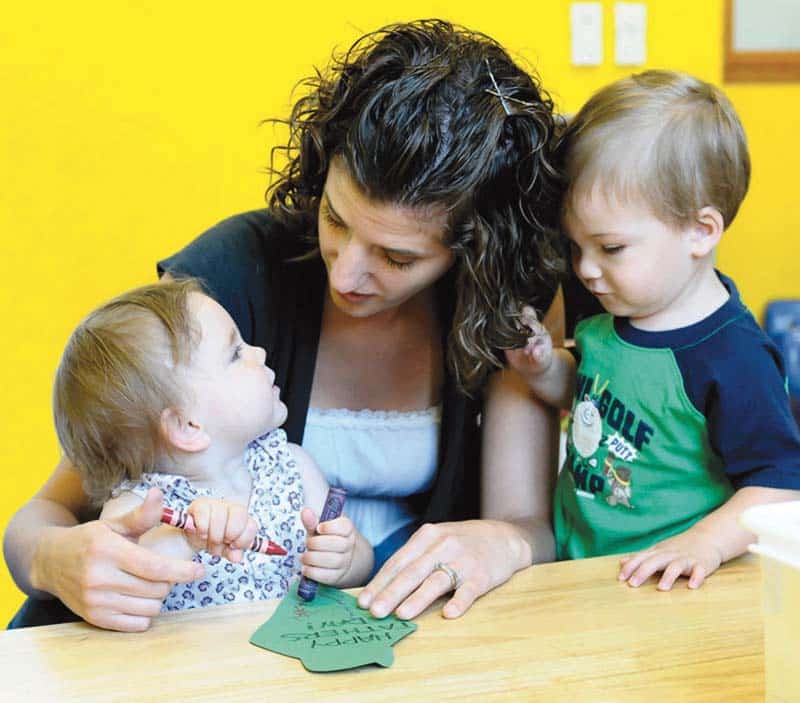This article may include advertisements, paid product features, affiliate links and other forms of sponsorship.
Being a mother is the most important job you will ever have. Whether you work outside of the home or are a full-time mom, your job never ends. If you are raising a special needs child, your mom workload is endless. Here is just a glimpse into what raising a spcial needs child may entail.
Raising a Special Needs Child
Trust your intuition
Are you familiar with the term “Mom knows best”? There is absolute truth within that statement. Nobody knows your baby better than you do. Moms know what their children need before they even ask for it. Similarly, a mom will know if something is off with their child.
Finding the best Pediatrician
The most important aspect of raising a special needs child is to have frequent communication with their pediatrician. The physician should document all of your concerns as well as their own observations. If you two are not on the same page in regard to your child’s care, you should find another pediatrician that is willing to see you as the expert on your child. Ask questions! If you feel rushed or unheard during appointments, find another physician. The pediatrician you choose to care for your special needs child will become your greatest resource.
TIP: Keep a detailed dated log of all of your child’s symptoms. This will allow doctors and specialists a glimpse into what is going on.
Read about tips for dressing your child with sensory sensitivity here.
Obtaining a diagnosis
Once a diagnosis is finally obtained, moms tend to go on an emotional rollercoaster ride. Know this is completely normal. Ask the diagnosing doctor for literature pertaining to your special needs child and their diagnosis. Be sure to take a notebook with you and document their answers to the following questions: How will this impact their daily life? What safety precautions should be in place? Which services will s/he benefit from? What is our next step? Who is our team of specialists? If you leave the appointment overwhelmed, merely review your notes at a later time.
TIP: It is helpful to bring another adult with you to each specialist and doctor visit for support as well as note taking.

Be hesitant to believe everything you read online pertaining to your child’s diagnosis. Research at your own risk. Try to take every generalization with a grain of salt. In most scenarios, symptoms vary within each individual.
Find support
Although you may feel alone in this, moms of children with special needs are all in this together! Raising a special needs child is one of the most isolating of life’s circumstances. Not many can empathize. You will receive a ton of sympathy- initially. As with any support network, that may fade. Find other moms who get it! Social media is a great resource to find support. Alongside mom support groups, there are organizations such as Tiny Superheroes that empower children overcoming disabilities. Your special needs child will be thrilled to be part of such an amazing and empowering organization! Moms find wonderful support within the group, as well. Be sure to check out their smaller, statewide, Tiny Squads within New York, Ohio, Florida, Michigan, Missouri, Mississippi, and Nebraska.
Read the pros and cons of joining online support groups here.
Community Resources
If you are unaware of your community’s resources, a great place to start is your local library. There, you will be connected with what your town has to offer. Local community action organizations can connect you to agencies waiting to help. Contact your local elected officials! Their offices can be extremey useful in connecting you with organizations that can meet your family’s needs. Attend community events such as those put on by Think DIFFERENTLY.
School and the special needs child
If your child is between the ages of one and two, they can be evaluated through your county’s Early Intervention program (EI). One they are three years old, the school district in which you live is responsible for coordinating an evaluation. Evaluations will consist of speech, occupational therapy (OT), physical therapy (PT), and psychological testing. Anyone can call and request their child to be evaluated. Even if your child does not qualify for services such as OT, PT, or speech, you can still ask the evaluators for suggested exercises that will be beneficial for your child. They, too, have knowledge of available resources within your community. Once evaluations are completed, a school plan can be created for and catered to your child’s strengths and needs.
Inform your child’s teachers about their diagnosis. Teachers will appreciate knowing how they can best help your child. Keep in contact with them and inform them of any upcoming appointments, changes, setbacks, or progress.
Doctors & Therapists
Chances are your child will have many doctor, therapy, and specialist appointments. Be prepared to wait hours with fun activities, extra snacks, and a favorite book. Make a list of questions and concerns before hand. Bring your notebook of symptoms and records to appointments with you. If you do not have someone to go with you, ask to voice record the appointment so you can later remember important points that were discussed. You can also take notes, if able to do so. If you want to remember something important, ask the doctor to write it down right then and there. If you do not feel as if the doctor is the right fit for your child or you have a concern with their plan, seek another opinion. It is ok to switch doctors or therapists. On the other end of the spectrum, if you are fortunate enough to find an incredible physician, keep them! An incredible pediatrician will be your absolute greatest resource.
TIP: During your pediatrician or therapist selection process, ask children you know which doctor within the practice they like most and why. This will provide you valuable and unmatched insight.

Take care of yourself!
If you and your child were on a plane and it was crashing, would you give them the oxygen mask first or take some for yourself before handing it off to them? Many mothers will unselfishly answer that they would save their child first. Well, how can you save your child in this situation if you do not first breathe in oxygen for yourself? Your baby needs you to be strong in this. It is not easy, by any means. This is the toughest job you will ever have. You were hand selected to care for a special needs child. Take care of yourself so you can be strong for them! Enjoy some alone time whenever possible. Grab a latte. You deserve it!

www.instagram.com/pkunderwearfactory
Raising a child with special needs will most likely be your greatest challenge and reward, simultaneously.
???? NEWSLETTER: DAILY READS IN YOUR INBOX ????
Sign up to receive our picks for the best things to do, see and buy so you can relax and focus on more important tasks! Let us help you be the best version of yourself you can be!
GET MORE FROM DAILY MOM, PARENTS PORTAL
Newsletter: Daily Mom delivered to you
Facebook: @DailyMomOfficial
Instagram: @DailyMomOfficial | @DailyMomTravel | @BestProductsClub
YouTube: @DailyMomVideos
Pinterest: @DailyMomOfficial
???? LOVE IT? PIN IT!????

Photo Credits: Unsplash.com, pixabay.com










